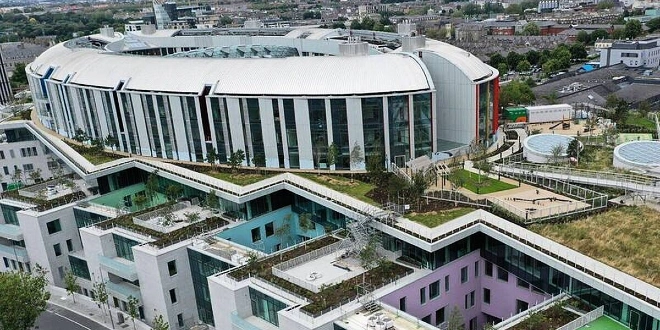Ireland’s long-delayed National Children’s Hospital will not begin receiving patients before mid-2026, senior project officials confirmed during testimony to the Dáil’s Public Accounts Committee. Representatives from Children’s Health Ireland (CHI) and the National Paediatric Hospital Development Board (NPHDB) detailed ongoing setbacks and spiraling expenses, while facing pointed questions about oversight, accountability, and disputes with the main contractor, BAM.
Lucy Nugent, CEO of CHI, informed the committee that due to a required commissioning phase of nine months, the earliest feasible date for opening is now projected for the end of June 2026. Meanwhile, NPHDB Chief Officer David Gunning acknowledged that the substantial completion target provided by BAM is now 30 September 2025, but cautioned that confidence in the timeline remains low given the project’s poor track record in meeting deadlines.
This latest estimate marks the 15th revision to the hospital’s final delivery date since 2020.
Tensions with Contractor and Financial Fallout
Mr. Gunning expressed ongoing concerns about the contractor’s performance and reliability, stating he has lost faith in BAM’s ability to meet commitments. He attributed delays to issues beyond just design changes, arguing that the construction firm has not always deployed adequate resources to the project. He estimated that each month of delay is currently adding €2 million to the overall cost.
Project Director Phelim Devine also claimed that BAM has not maintained full deployment of resources at this late stage of development. Meanwhile, the projected total cost of the project now ranges between €2.2 billion and €2.3 billion, as acknowledged by the committee and confirmed by multiple witnesses.
The original budget of €1.433 billion did not account for factors such as Brexit-related disruptions, the war in Ukraine, and escalating construction inflation, Mr. Gunning added. Despite the cost increase, he asserted that no open-ended commitments or “blank cheques” had been extended to the contractor.
Contractor Disputes Timeline and Design Burden
In a detailed statement, BAM attributed the most recent delays to a series of design alterations requested by the board. The company stated that since a ministerial meeting in October 2024, roughly 70 major change orders—each potentially involving several design revisions—had been issued, pushing completion further out.
BAM emphasized that it is not responsible for the hospital’s design and suggested that the Public Accounts Committee was not presented with a complete and balanced account of the facts. The company stated it is currently deploying resources at 50% above original expectations for this phase of the project due to the increased workload from these changes.
Ongoing Legal Disputes and Conciliation Challenges
The development board continues to face a significant volume of claims from BAM. Mr. Gunning reported a total of 3,277 claims submitted by the contractor, amounting to €856 million. Of these, only €50.5 million in claims have been validated by the board, with approximately 2,200 claims still in dispute.
Five legal proceedings are already before the High Court, and additional cases are anticipated. Mr. Gunning expressed confidence in the board’s legal position, despite acknowledging that BAM had won certain points during conciliation.
Comptroller and Auditor General Seamus McCarthy confirmed that BAM received €122 million following a conciliation ruling in its favor concerning a delay-related issue. That payment is now being challenged in the High Court. Should the challenge succeed, BAM may be required to return the funds.
Government Responsibility and Political Repercussions
Health Minister Jennifer Carroll MacNeill had earlier indicated that she expects the final cost of the hospital, including commissioning, to reach approximately €2.24 billion, with operations beginning in 2026.
Mr. Gunning reiterated the board’s determination to complete the project in collaboration with CHI, the Department of Health, the Health Service Executive (HSE), and BAM. He acknowledged widespread frustration and emphasized the project’s long-term value once operational.
Tánaiste Simon Harris, who served as Health Minister when the project was approved, accepted personal responsibility during Leaders’ Questions in the Dáil. Harris acknowledged that he had brought the hospital proposal to Cabinet and recommended its advancement, stating that leadership required decision-making despite risks. He maintained that he would ultimately be accountable for delivering a high-quality healthcare facility.
Aontú leader Peadar Tóibín responded by accusing Harris of deflecting accountability and likened his defense of the project to that of a pressured estate agent trying to justify the cost of an overpriced asset. Tóibín characterized the project as emblematic of governmental mismanagement and financial inefficiency under successive Fianna Fáil and Fine Gael administrations.
 The Daily Star Ireland
The Daily Star Ireland

